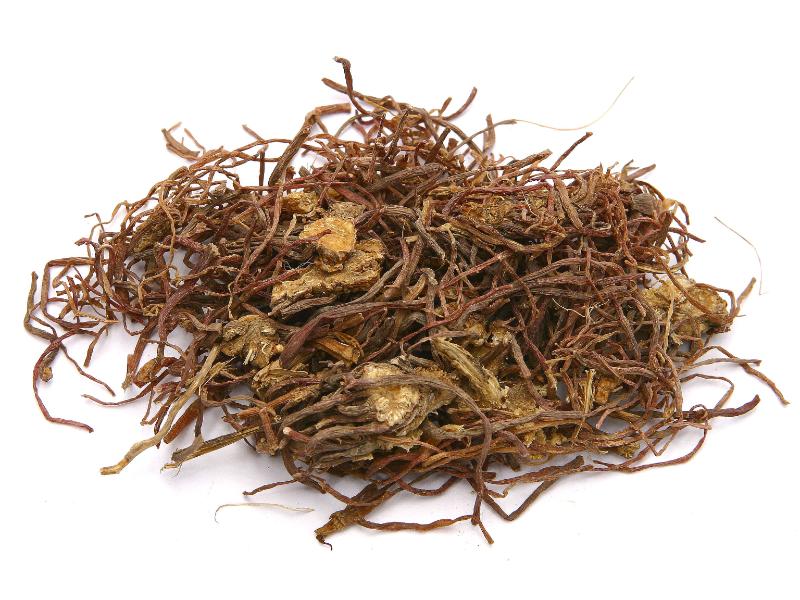Search in medicinals
Asteris Radix
Aster [root]
紫菀 〔紫菀〕 zǐ wǎn

Alternate English names: Tartarian aster [root]
Alternate Chinese names: 紫蒨 zǐ qiàn; 青菀 qīng wǎn; 返魂草根 fǎn hún cǎo gēn; 紫菀茸 zǐ wǎn róng; 紫苑 zǐ yuàn
Kingdom: Plant
Origin in PRC Pharmacopoeia: Aster tataricus L. f. (PRC Pharmacopoeia)
Origin in unofficial sources: Aster tataricus L. f.*; Heteropappus altaicus (Willd.) Novopokr. [= Aster altaicus Willd.]; Aster souliei Franch.; Aster diplostephioides (DC.) C.B. Clarke; Ligularia fischeri (Ledeb.) Turcz.; Ligularia sibirica (L.) Cass; Ligularia intermedia Nakai; Ligularia hodgsoni Hook. var. sutchuenensis (Franch.) Henry; Ligularia macrophylla (Ledeb.) DC.; Ligularia przewalskii (Maxim.) Diels.
Use: Medicinal
Category: Phlegm-transforming cough-relieving panting-calming agents / Cough-relieving panting-calming agents
Properties: Sweet, bitter; slight warm. (Some sources also list acrid.)
Channel entry: Lung channel.
Actions and indications: Moistens the lung, transforms phlegm, and relieves cough: Cough with phlegm.
Dosage and method: Oral: 5–10g in decoctions. Use it raw for sudden cough in external contraction patterns and use the honey-processed form for lung vacuity with enduring cough.
Warnings: Unless it is combined with medicinals that treat the corresponding pattern, zǐ wǎn should not be used for dry cough in yīn vacuity with hyperactive fire, or for cough in repletion heat patterns.
Product description: Numerous supple, wrinkled, brown roots, 6–15 cm long and 1.5–2 mm thick, with flesh slightly darker than the surface, springing from a grayish-brown rhizome that is smoother than the roots, varies from 1 to 7 cm in length and from 1 to 5 mm in thickness and bears leaf bases on its upper extremity. The decocting pieces are 1.5 cm lengths that are brown on the cut edge.
Quality: Dry, thick, long, tidy roots that are clean of earth are the best.
Production area: Héběi, ānhuī.
Etymology: The name zǐ wǎn 紫菀, purple aster,
reflects the color of the flowers. Wǎn 菀, aster, interpreted as deriving from the homophone wǎn 宛, soft, adds a hint as to the texture of this item.